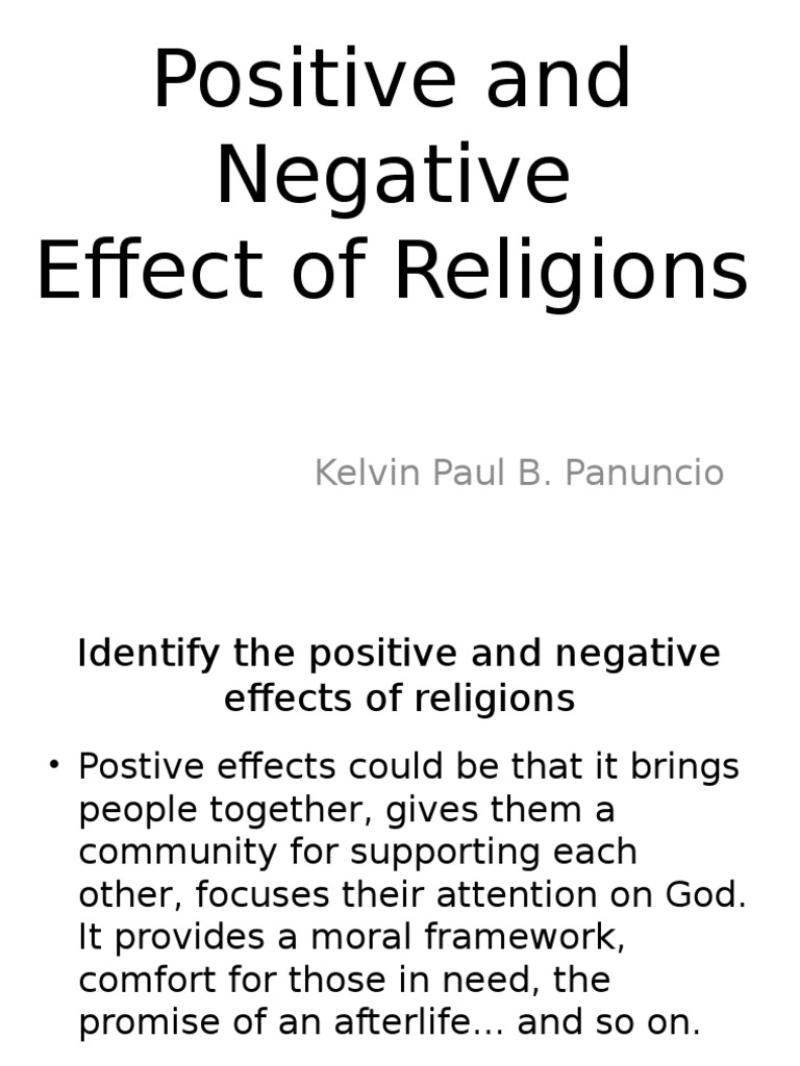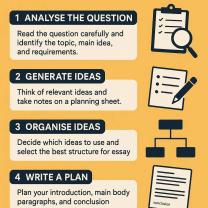What are the effects of religion on education?
Religion has had a significant impact on education throughout history and continues to influence educational systems and practices around the world. The effects of religion on education can be seen in various ways:
Curriculum and Values: Religious beliefs often shape educational curricula by influencing the values, morals, and ethics taught in schools. Religious educational institutions might prioritize teaching religious texts, rituals, and values alongside secular subjects.
Formation of Schools: Many educational institutions, historically and presently, have been founded and operated by religious organizations or institutions, such as Christian, Islamic, Jewish, or Hindu schools. These schools often integrate religious teachings into their academic programs.
Moral and Ethical Development: Religion plays a role in shaping students' moral and ethical development. Religious education can provide a framework for understanding right and wrong, emphasizing virtues and ethical behavior based on religious teachings.
Cultural and Social Influence: Religion can contribute to cultural and social cohesion within educational settings. It influences traditions, celebrations, and rituals within schools, fostering a sense of community among students and teachers who share similar religious beliefs.
Controversies and Challenges: The influence of religion in education can sometimes lead to controversies, especially in diverse societies. Debates arise over the inclusion of religious teachings in public schools, potential biases, and the challenge of accommodating various religious beliefs and practices in educational settings.
Worldview and Critical Thinking: Exposure to religious education can offer students different perspectives on life, morality, and the world. It can encourage critical thinking as students engage with various religious beliefs, promoting understanding and tolerance for diverse viewpoints.
Conflict and Tension: In some cases, the influence of religion in education can create tensions, especially in societies with multiple religious groups. Conflicts may arise over the dominance of a particular religious perspective in educational policies or practices.
The effects of religion on education vary widely across different societies and educational systems. In secular contexts, there's often a separation between religious teachings and public education, aiming to maintain neutrality and accommodate diverse beliefs. However, in religiously affiliated educational settings, faith-based teachings and values play a more prominent role in shaping the overall educational experience.
Balancing the influence of religion in education requires sensitivity to diversity, respect for different beliefs, and a commitment to providing an inclusive and equitable learning environment for all students, regardless of their religious backgrounds.
What impacts does religion have on the educational system and learning outcomes?
The impact of religion on the educational system and learning outcomes is complex and multifaceted, with both positive and negative aspects:
Positive Impacts:
- Moral and ethical development: Religious teachings can provide a framework for moral and ethical development, promoting values such as compassion, respect, and responsibility. These values can contribute to a positive learning environment and a more just and equitable society.
- Motivation and commitment: Religious faith can inspire students to learn and strive for excellence. The belief in a higher purpose or calling can motivate students to overcome challenges and persist in their studies.
- Community and belonging: Religious schools often foster a strong sense of community and belonging among students, which can be beneficial for their emotional well-being and social development. This can also provide support and encouragement for their academic pursuits.
- Cultural understanding: Studying religion can provide students with a deeper understanding of different cultures and traditions, promoting tolerance and respect for diversity. This can be especially valuable in a globalized world.
- Character development: Religious education can emphasize character development, teaching students to be honest, responsible, and compassionate individuals. These attributes are valuable not only for academic success but also for personal and professional development.
Negative Impacts:
- Limited critical thinking: Some religious teachings discourage questioning and critical thinking, which can hinder intellectual growth and limit students' ability to analyze information objectively.
- Indoctrination: Religious schools may prioritize religious dogma over academic rigor, leading to indoctrination and a lack of critical engagement with diverse perspectives.
- Discrimination: Religious teachings can sometimes be discriminatory or exclusionary, creating an environment that is hostile to certain groups of students.
- Suppression of scientific inquiry: Some religious beliefs may conflict with established scientific principles, leading to the suppression of scientific inquiry and the teaching of inaccurate information.
- Limited access to education: In some cases, religious schools may restrict access to certain subjects or perspectives, particularly those that are deemed incompatible with religious doctrine.
Learning Outcomes:
The impact of religion on learning outcomes is also complex and depends on various factors, including the specific religious context, quality of education, and individual student characteristics.
Studies have shown that students in religious schools may have:
- Higher academic achievement: This can be attributed to factors such as strong work ethic, parental involvement, and a disciplined learning environment.
- Stronger moral development: Religious teachings can promote values such as honesty, fairness, and helping others, which can contribute to positive social behaviors.
- Improved mental health: Religious faith can provide a sense of purpose and meaning in life, which can be beneficial for mental well-being.
However, other studies have also shown that religious students may have:
- Lower critical thinking skills: This can be attributed to an emphasis on conformity and obedience in some religious environments.
- Limited knowledge of other cultures and religions: This can lead to prejudice and intolerance towards others.
- Difficulties in adapting to a secular world: This can be challenging for students who have been raised in a religious environment that is vastly different from the wider society.
It is important to note that these are general trends and there are significant individual variations. The impact of religion on education and learning outcomes ultimately depends on a multitude of factors, and generalizations should be avoided.
Conclusion:
The influence of religion on the educational system and learning outcomes is multifaceted, encompassing both positive and negative aspects. It is crucial to consider the specific context, quality of education, and individual student characteristics when assessing the impact of religion on learning. Promoting critical thinking, fostering respect for diverse perspectives, and ensuring access to quality education remain essential for nurturing well-rounded and informed individuals regardless of their religious background.













